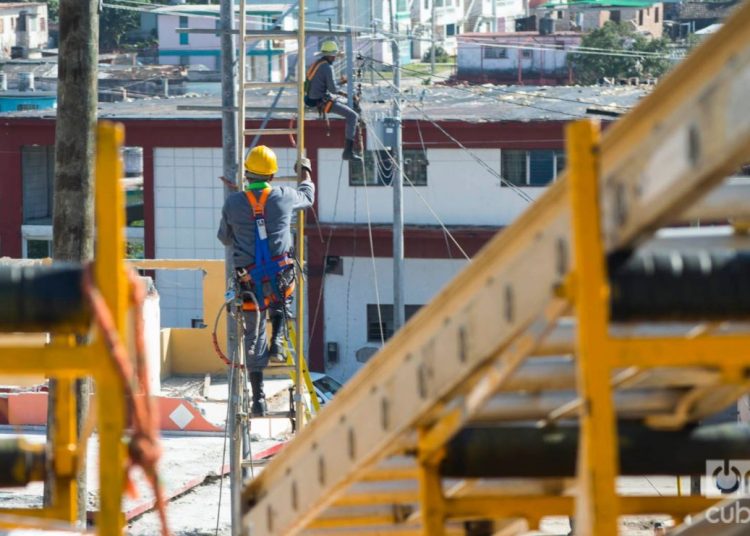The Cuban Electricity Conglomerate (UNE) said it has no power cuts―the so-called “blackouts”―planned for the summer season, despite the island’s difficult economic situation.
Elaine Moreno, general director of Rational Use of Energy of the UNE, said in a television report, quoted by the official site Cubadebate, that although summer is the time of the year with the highest electricity consumption in the country, “the national infrastructure has been prepared to respond with higher levels of power generation.”
However, the official left the door open to power cuts due to any breakage or case that might occur during this time of the year.
“Breakages can occur as a result of electrical storms or climatological events, but not for lack of electricity,” he said.
During the summer school holidays, between July and August, Cuba allocates some 400,000 tons of fuel for power generation, according to the television report. It is a figure higher than the rest of the year, due to the increase in consumption during these months.
Although summer hasn’t officially started, two power generation records have already been registered on June 5 and 10, with 4% above what was planned, according to the UNE authorities.
“Consumptions have to grow throughout the day, based on the concurrence of many equipment connected to the network,” said Moreno, who urged the population “to make rational use of energy” and “contribute to savings.”
In addition, she said that “a work program has been designed to monitor all consumption,” so “we must be efficient in the use of energy.”
According to official data, 56% of electricity consumption in Cuba is concentrated in the residential area, while the productive area, both state and private sector, concentrates 44% of the demand.
Cuba presents a complex economic scenario, as a result of U.S. sanctions, domestic inefficiency and the crisis of its ally Venezuela, which has been reducing shipments of fuel to the island.
Against this background, the Cuban authorities are trying to make up for the deficit with other suppliers, such as Russia and Algeria, and are betting in the medium and long term on an increase in the exploitation of renewable energy.
At the end of 2018, Cuba had installed 5,881 MW of electricity generation and had a single 100% electrified system.
According to government forecasts at the time, an increase of 3.2% in both power generation and consumption was expected for 2019 compared to last year’s estimate.
The highest growth was expected in the residential sector, with an increase of more than 4.7%, although the total consumption of energy carriers would remain at about the 8.4 million tons of fuel of 2018.










